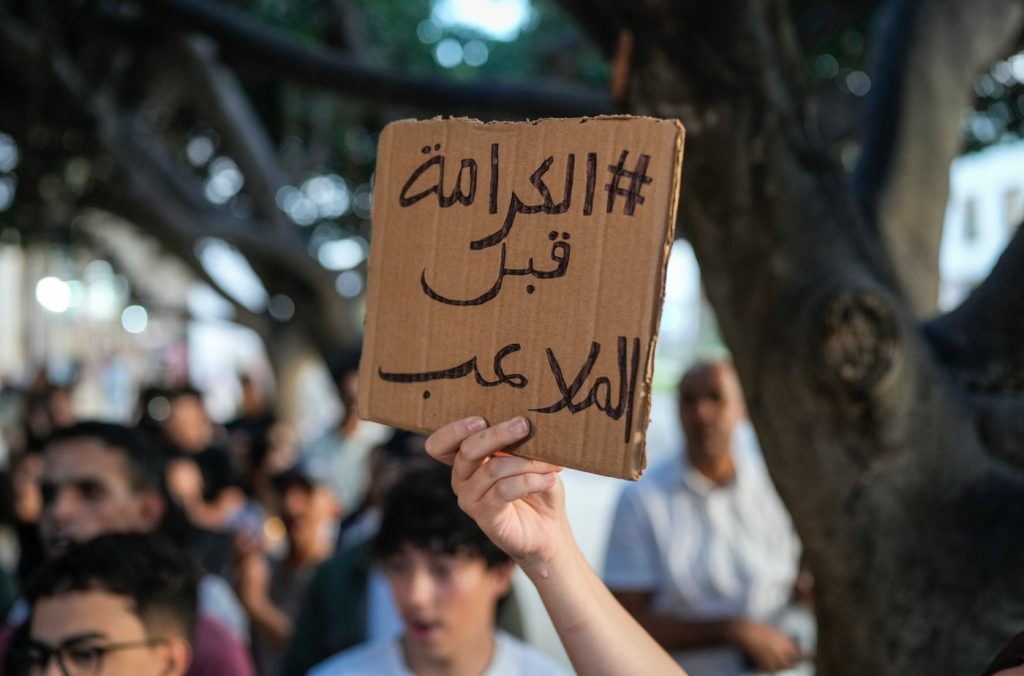RABAT, Morocco (AP) — Demonstrations have erupted across more than a dozen cities in Morocco, fueled by discontent among the youth regarding corruption, limited opportunities, and a sense of negligence from authorities. The protests have successfully transitioned digital frustrations into an impactful real-world movement, demonstrating their significance in the socio-political landscape of the North African nation.
Morocco joins a growing list of countries, including Madagascar, Kenya, Peru, and Nepal, experiencing similar "Gen Z" protests. These movements, despite their unique origins, share a common pattern of young people bypassing traditional institutions such as political parties and labor unions to voice their demands for change.
In Morocco, public frustration has intensified over the stark contrast between the government's investment in infrastructure for events like the 2030 FIFA World Cup and the inadequacies of the national healthcare system. Observers point to the allocation of billions into stadiums while essential services, such as healthcare, remain underfunded and inaccessible.
The protests are largely organized by a collective known as Gen Z 212, named after Morocco's country code. Communicating primarily through Discord, this grassroots group has amassed about 180,000 members, mobilizing independently across various towns to facilitate protests.
The demographics of Morocco further amplify the urgency of these movements, as over half of the population is under 35 years old. Unemployment rates among young people, particularly those aged 15-24, have soared to 36%, highlighting a persistent economic malaise amid extraordinary governmental spending in other areas. As many as half of Moroccans in this age group are contemplating emigration due to a perceived lack of opportunities.
Morocco is known for its rich cultural heritage and attracts millions of tourists annually. However, the reality for the majority of its 37 million citizens is characterized by rising living costs and stagnant wages. The country has made some progress in raising living standards, but developmental benefits have not been equitably distributed, exacerbating social and economic disparities.
Infrastructure investments include Africa’s first high-speed rail line and the construction of multiple new stadiums, yet the minimum wage remains around $300 per month. Many people live in poverty, particularly in rural areas that lack basic services such as paved roads, medical care, and adequate schooling facilities.
Localized protests prior to the rise of Gen Z 212 highlighted existing grievances regarding regional inequities and governmental priorities, especially in areas impacted by the 2023 earthquake. Distress peaked when avoidable maternal deaths in hospitals sparked demands for accountability and reform from the health sector.
Protesters have characterized the government in stark, uncompromising terms. Many have called governmental officials corrupt and likened them to a mafia, specifically targeting Prime Minister Aziz Akhannouch, whose business interests have purportedly influenced government contracts. Protest slogans have continuously echoed demands for dignity, social justice, and a stark critique of priorities that seem disconnected from the pressing needs of the populace.
Key protest chants emphasize the contradiction in vast public spending on stadiums versus the urgent need for healthcare facilities: "Stadiums are here, but where are the hospitals?" In a letter addressed to King Mohammed VI, protesters have outlined demands for governmental accountability, calling for the dismissal of corrupt political figures and the release of detainees from earlier demonstrations.
The government response has varied. Following violent incidents, security forces have alternated between suppressing protests and allowing occurrences of vandalism and rioting. The authorities have made arrests, with sentences for demonstrators ranging from four to 20 years for their involvement. While some government officials propose reforms and an openness to dialogue, many demonstrators remain skeptical, voicing concerns that the government's actions have been mere "patchwork measures" with inadequate urgency and depth.
In addressing the Parliament, King Mohammed VI defended the government's vision for progress, asserting that large-scale projects should not compromise social welfare. However, the disconnect between governmental rhetoric and the realities faced by many Moroccans continues to stoke discontent and unrest across the nation.











